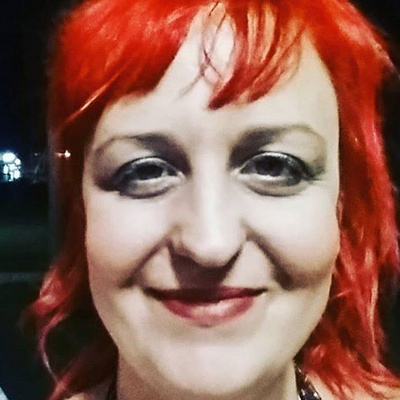The Western Australian Circus Festival, an Annual Festival Brought to You by Lunar Circus
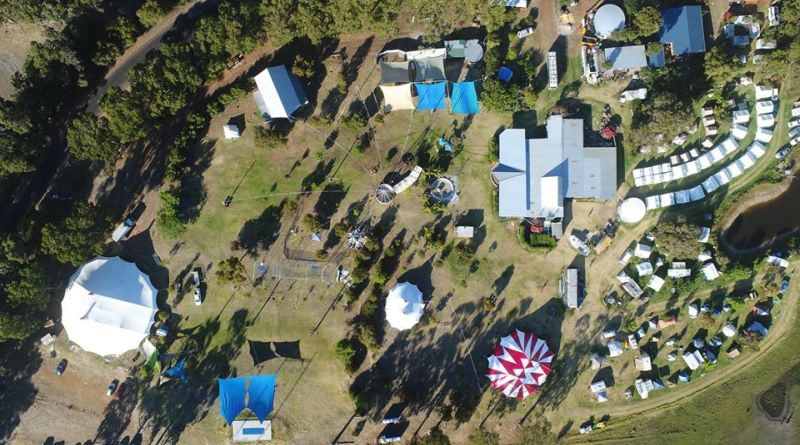
The Western Australian Circus Festival takes place every year in January in beautiful Karridale, in the famous Margaret River region of south-west Western Australia. Festival founder Matt Yates (aka Fatso) first jumped into circus as a juggler around about 1989. Developing his skills as an acrobat and street performer, he went on to work as a trainer for the Flying Fruit Fly Circus, alongside exemplary Russian and Chinese trainers. He set up Lunar Circus 20 years ago in 1998 in Margaret River in Western Australia and trained his duo hand-to-hand act. As an older performer, he says he now prefers to focus on hand- and head-balancing, and finds these skills good for training.
Nadia Jade spoke to Yates, the festival director, circus trainer and visionary, and Louise Moss, executive producer and festival coordinator.
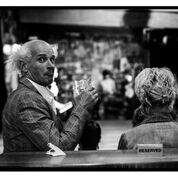
Yates explained why he started the festival: “I’ve always wanted to run a festival, and just needed the land to do it. I was looking to buy my first house and this property came up. It was pretty rough, but it had a heap of sheds on it, and I just saw the potential.”
The site was brought in 2002, and the initial few years required some seriously hard graft. The property had been set up as a cash-crop tree plantation, so the first few years were spent clearing the crop, selling the trees, and digging out the stumps to landscape the site. “The first festival was dust and gravel and pretty hardcore. Trainers and performers all piled in to help clear the boulders from the site. The shed was transformed into the most beautiful bar in the west, and hosts all the cabaret shows during the training weeks of the festival,” said Yates.
Moss found herself unexpectedly at the helm of a circus festival just seven years ago. It was a career tangent that took her by surprise, but now fills most of her year’s work. She explained, “People underestimate the amount of work involved in running a festival of this size. You don’t just rock up in December. We start working on this in April and wrap up the year the following March. Then go again. That said, it is so rewarding. People come from all over the world to train. You can’t get this sort of training anywhere, not at this level. This kind of training isn’t provided without attending NICA or other similar institutions, and even then, you wouldn’t necessarily get the range of tutors as we have.”
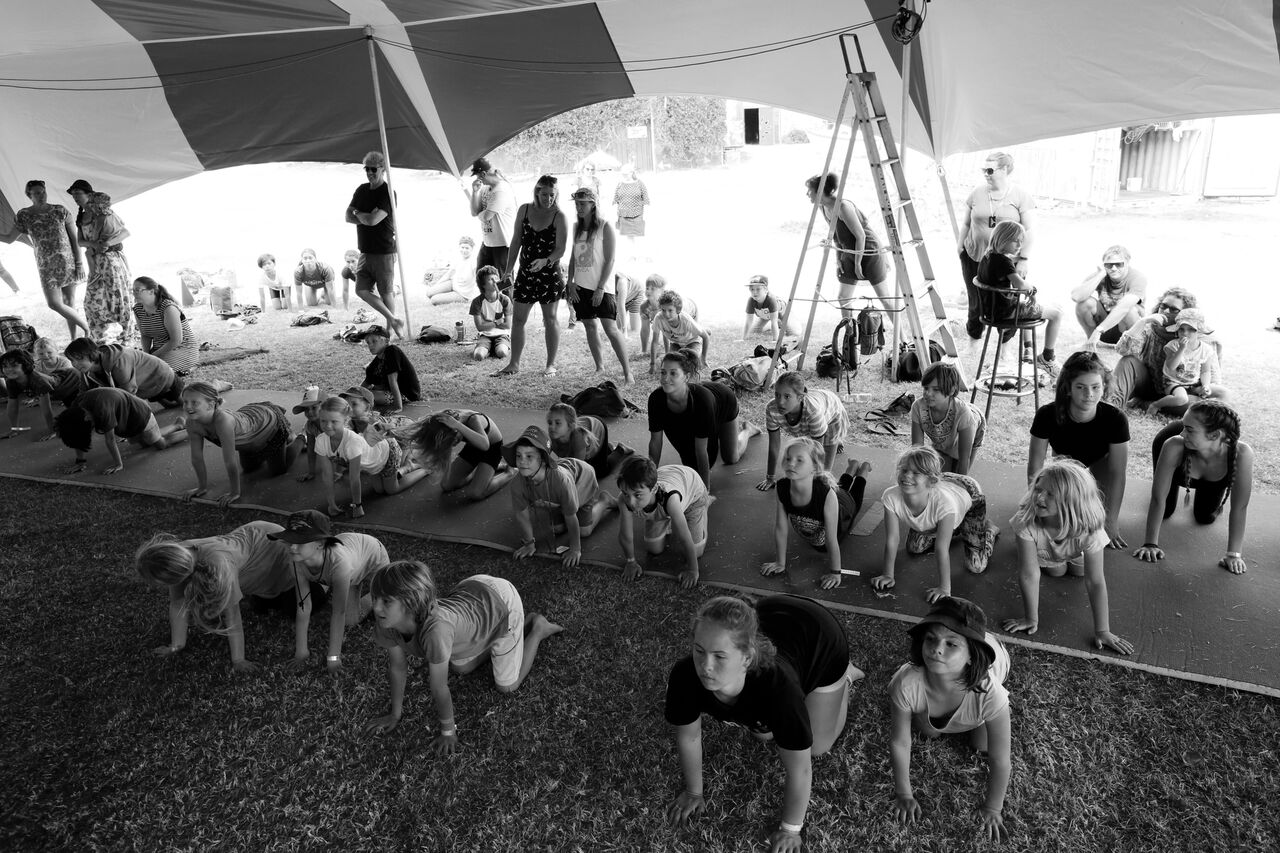
What Happens at the Festival
The festival features three weeks of training classes. During the Lunar Circus Summer School, around 400 participants take part in 80 daily classes. There are around 15-17 classes every hour, spanning every discipline from manipulations, aerials, hand-balancing, acrobatics, magic and tightwire. In addition, artist talks span topics as diverse as innovations in apparatus, gendered issues, and arts marketing.
After Summer School, festival training sees an additional 50-odd performers and trainees flying in to partake in masterclasses at the next level, before the festival proper – three days of circus, magic, comedy, cabaret, and vaudeville. 100 performers strut their stuff before 3000 colourful festival goers, starting with family friendly offerings from midday, and finishing up with the infamous and risqué late night cabarets. In addition to circus, the festival offers a vibrant musical line-up, so that everyone can let their hair down and shake out three weeks of intensive training.

The Western Australian Circus Festival is renowned in the Australian scene as the longest continuous-running circus festival. It operates as an ideal jumping off point from where performers travel onwards to the Perth and Adelaide Fringe Festivals, before journeying on to the Brighton, Prague, and Edinburgh Fringes. Regular festival guests include international talent scouts for major European festivals.
The focus on engaging international tutors and performers leads to diversification in the Australian industry. Approximately 40% of the training ensemble are international performers, flying in from Europe, Asia, Africa and the Americas.
Yates explains how this diversity has helped the local circus community: “Over the past 10 years, we’ve developed opportunities for the local circus kids that have changed their trajectories. A lot of the kids who have trained here have gone on to train with various international troupes, some of which they have connected with here. They have gone on to train at circus schools in Toulouse, Berlin, Montreal and New Zealand, as well as our own NICA. It’s been an awesome stepping stone for the youth of the Australian industry.”
Like much of regional and rural Australia, outside of the big centres there is often little in the way of support for the arts, let alone the opportunity to see hundreds of top-quality, internationally award-winning performances.
But Moss says that benefits from the festival extend to the public too “To the general populous, we offer a quality of entertainment that is rarely available around here. Like much of regional and rural Australia, outside of the big centres there is often little in the way of support for the arts, let alone the opportunity to see hundreds of top-quality internationally award-winning performances. People love the festival, the diversity. Its not just circus, its a range of acts, and a beautiful and lively festival full of visceral real-world experiences. Kids forget all about screen time at the festival.”
The Lay of The Land
The purpose-built festival site is very unique, and will be of interest to veteran and new generation circus performers alike. An ongoing labour of love, there are multiple site-specific features tailor-made for circus arts.
The Bus Station is a unique aerial training rig and is built out of the old tour buses, each of which completed extensive year-long tours around Australia and South East Asia. The history that envelopes each mechanical carcass adds to the lustre of the venue, reminiscent of the punk villages of Hamburg and Berlin.
The Infamous Reg Bolton Bar celebrates the life and times of a much-loved circus hero, and is a beautifully outfitted salon with an elevated roof, including multi-point aerial rigging for intimate evening cabarets.
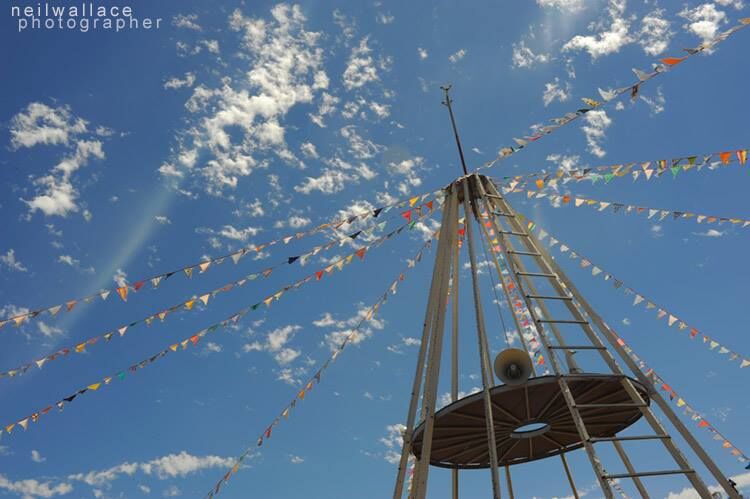
The Rocket Ship is a unique performance tower, which features a quirky ground-level interior space for intimate performances, as well as a 10-metre-high platform that has views over the entire festival site, encircled by colourful hand-made bunting.
A long-term liaison with master tent-maker Peter Brockman sees the site bedecked with five big tops varying from 100 -700 seaters, each with purpose-built circus stages. This year unveiled the gorgeous Lollipop Big Top, a delightful bright red-and-white confection that sings of carnival festivity. Eight outdoor aerial rigging points are located around the lush green site, including a full-sized flying trapeze rig.
The Talent

This year there are acts from all over the planet. We welcome sketch comedy and circus catastrophe Laser Kiwi (New Zealand), German speed-juggler Marc Dorffner, Irish comedic genius Martin Mor, creative hula hooper Mounâ (Tunisia), perch-balancing masters Rodrigo & Solene (Mexico/France), Tumble Circus (Ireland), divine aerialist Mariano Rocco (Argentina), the consummate duo aerialists Dream & PJ (USA), and Fabian Galouÿe, French aerialist and master of the diabolo.
Our Australian performers include the hilarious antics and hijinks of Tom Flanagan’s family-favourite Kaput, the incredible unique acrobatic troupe Casus (performing for the first time in WA), award-winning festival favourite and comedy maestro, The Birdmann, legendary North East Arnhem Land dance troupe Djuki Mala, Melbourne’s post-apocalyptic party Retrofuturismus, the marvellous magic of Liam Power, multi-generational adagio A Good Catch with the indomitable Debra Batton, and local legends, The Pitts Family Circus.
The Western Australian Circus Festival will take place January 26th-28th, 2018.
Editor's Note: At StageLync, an international platform for the performing arts, we celebrate the diversity of our writers' backgrounds. We recognize and support their choice to use either American or British English in their articles, respecting their individual preferences and origins. This policy allows us to embrace a wide range of linguistic expressions, enriching our content and reflecting the global nature of our community.
🎧 Join us on the StageLync Podcast for inspiring stories from the world of performing arts! Tune in to hear from the creative minds who bring magic to life, both onstage and behind the scenes. 🎙️ 👉 Listen now!
